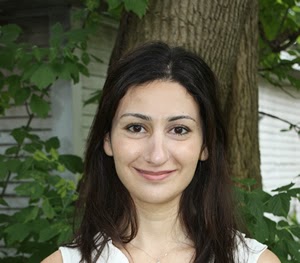Her greatest exposure to policy came while participating in an ecosystem-based management working group with representatives from agencies like the Department of the Interior, NOAA, the U.S. Navy and EPA. Ecosystem-based management is a type of resource management that focuses on whole ecosystems instead of individual species or resources and is one of nine policy recommendations included in the National Ocean Policy Implementation Plan. The group – officially known as the National Ocean Council ecosystem-based management interagency subgroup – was charged with determining what this recommendation meant for each agency and identifying work priorities and pilot projects. In her role with the National Science Foundation, Najwa identified science and knowledge gaps and connected the group with academic experts.
About Newsroom
Recent News
- Sea Grant Chats: Looking back on our AIS legacy as we move forward
- National Sea Grant welcomes 2026 Knauss Marine Policy Fellowship finalists
- IISG’s new year starts with a new research and reporting coordinator
- Ripple Effects curriculum engages students on the spread of aquatic invasive species
- Coastal communities can tap into IISG resources as they manage beach sand and structures
IISG Instagram
Managers and researchers can be faced with a need to classify the risk of new crayfish invaders. Rapid assessment tools, such as the Science-based Tools for Assessing Invasion Risk (STAIR), can assist in this process by providing a streamlined framework for analysis and decision-making.
Join us for an ICC webinar with John Bieber from Loyola University Chicago to learn how rapid assessment tools are used to classify invasive species risk and how STAIR can support invasive crayfish management.
Learn more at the link in bio.

Join us for a hands-on @projectwet Make-and-Take Workshop in Chicago!
📅 When: March 12, 2026 from 9:00 AM – 3:30 PM CT
📍 Where: 200 S Wacker Dr., Chicago, IL
💲 Cost: $25 (includes classroom-ready activity kits, lunch & refreshments)
🗓️ Registration closes February 26.
✅ Open to 3rd–8th grade formal & informal educators
✅ Earn 6 PD hours
✅ Leave with ready-to-use water education kits aligned to Common Core & NGSS
👉 Don’t miss out—space is limited!
Learn more and register at the link in bio.

Explore the history, impact, and educational power of Meaningful Watershed Educational Experiences (MWEEs).
eeLEARN: MWEE 101 is a free, self-paced online course that walks you through the MWEE framework with examples, planning tools, and downloadable resources that you can use immediately.
Start learning today at the link in bio.

Some partnerships just make sense. Happy Valentine’s Day from IISG! 💕


